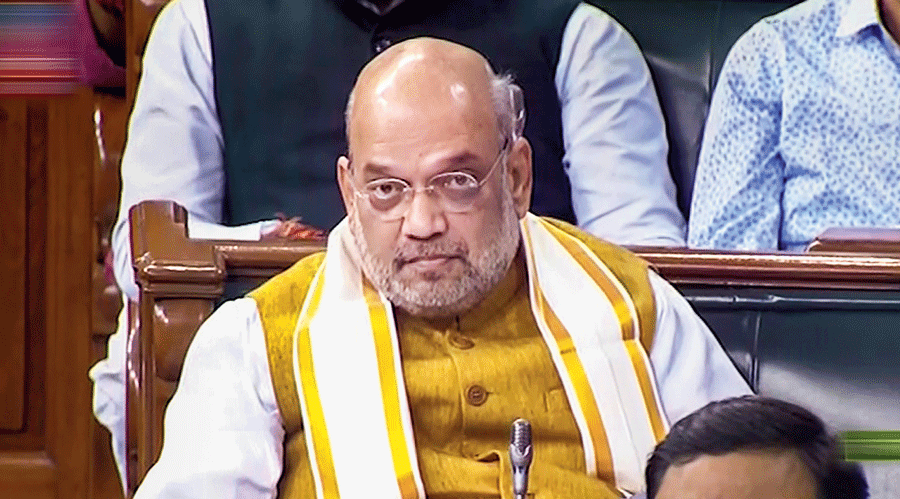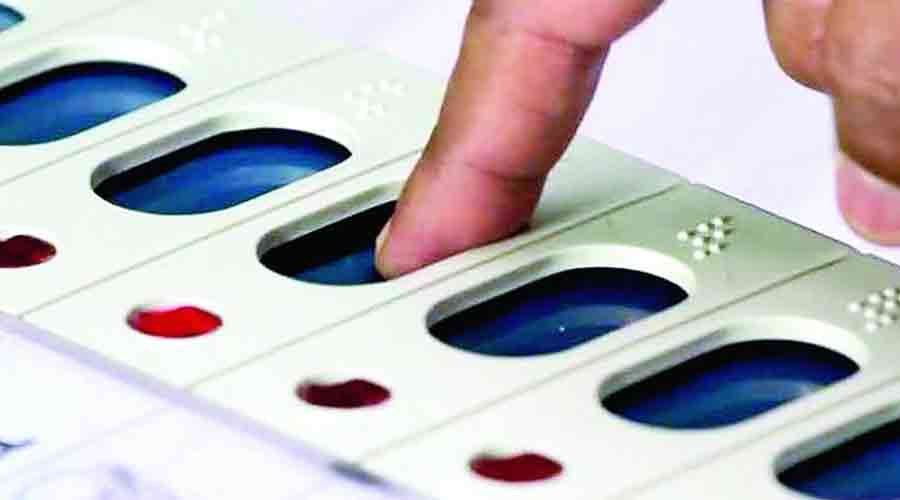The Narendra Modi government on Monday rushed through the Lok Sabha a bill that purports to give untrammelled powers to law-enforcement agencies to collect a wide spectrum of physical and biological samples from prisoners and even those in preventive detention, disregarding Opposition allegations of enforcing a surveillance state.
The Opposition parties, fearing misuse and violation of privacy and fundamental rights, had sought more scrutiny by a parliamentary panel.
But the Criminal Procedure (Identification) Bill, 2022, was passed in the Lower House by voice vote after home minister Amit Shah mounted a firm defence of the proposed law by invoking national interest and claiming that it was aimed at arming law-enforcement with modern technology to increase conviction rates and punish criminals.
Shah aggressively rejected the data-misuse fears of the Opposition, claiming that adequate protections had been written into the proposed law. He accused the Opposition MPs of viewing legitimate legislation brought in by the government through the prism of vote-bank politics.
The Opposition members quoted portions from the bill, which will now be tabled in the Rajya Sabha, to highlight the dangers it purportedly poses and accused the government of taking another step towards unleashing a “police state” by giving sweeping powers to law-enforcing agencies, silencing dissent and targeting minorities. Several amendments moved by the Opposition were defeated by voice vote.
The bill seeks to authorise law-enforcing agencies to collect biometric data, along with physical and biological samples, of people convicted, arrested or merely held in preventive detention. The data that can be collected, stored and analysed include “finger impressions, palm-print impressions, foot-print impressions, photographs, iris and retina scan, physical, biological samples and their analysis, behavioural attributes including signatures, handwriting…”, according to the bill.
It is being widely seen as yet another “draconian” law aimed at suppressing dissent and targeting political rivals.
“The 1920 British-era law (which the bill seeks to repeal and replace) was more liberal than this,” RSP parliamentarian N.K. Premchandran said, adding that it was in clear violation of fundamental rights and demanding that it be sent to a standing committee and not steamrolled through the House. All Opposition leaders pressed for more consultation and scrutiny but Shah found no merit in the demand.
Responding to many Opposition members’ apprehensions over the powers to collect physical and biological samples, from even detainees and those ordered to give security for good behaviour or maintaining peace, Shah sought to assure the House that there would be adequate protection in the rules and promised to even come up with an amendment if needed.
He claimed that the proposed law doesn’t provide for collection of physical and biological samples under sections that do not entail imprisonment less than seven years.
“This bill has been brought in with the sole purpose of increasing convictions in the country and to protect the rights of law-abiding citizens,” the home minister said as he sought to accuse the Opposition of worrying only about the human rights of criminals.
Most Opposition members objected to the bill, stressing that it was being pushed through at a time a data protection bill was still to be passed by Parliament and questioning the government’s intent.
“This law is being proposed in the absence of an overarching data protection law,” Trinamul’s Mahua Moitra said and feared misuse like in the case of the anti-terror law UAPA.
The Opposition accused the government of violating federalism by encroaching into the territory of states since law and order was a state subject.
“Are we trying to create a surveillance state?” the DMK’s Dayanidhi Maran asked.
He pointed out that given the current government’s record, the proposed law could be used to target minorities. Maran cautioned the government not to take power for granted. “What happened to the Congress will happen to you also,” he said.


